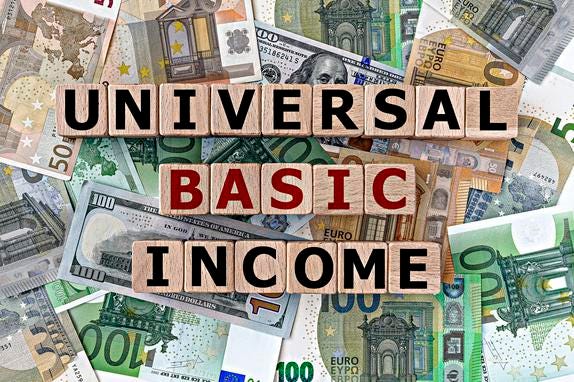Some cities are experimenting with modest assured revenue applications, however these will not be the … [+]
In 2020, Andrew Yang centered his presidential marketing campaign on “The Freedom Dividend”—a common fundamental revenue (UBI). Though Yang’s candidacy (and proposal) went nowhere, the thought of a assured revenue remains to be alive, and cities are experimenting with a extra modest model of it. However these modest applications gained’t reform the welfare state or present the broad modifications wanted to deal with inequality in cities and the nation.
The New York Times
That group requires an “revenue ground via a assured revenue,” itemizing 81 mayors in help, though not all of them have pilot applications. These applications are extra modest than Yang’s UBI proposal, which known as for $12,000 yearly “for each American grownup over the age of 18.”
Are cities, struggling inequality and financial discrimination, as soon as once more making an attempt to create their very own welfare states? My forthcoming guide for Columbia University Press, Unequal Cities, argues that cities’ structural political and financial disadvantages make it nearly unimaginable for them to try this on their very own, despite the fact that they’ve urgent fiscal and social wants.
It clouds the general public debate to name these modest, focused applications “common fundamental revenue” as if they might go to everybody and supply sufficient revenue to stay on. In actual fact, these pilot metropolis applications are focused revenue helps for small numbers of low-income folks, typically targeted on these with very younger kids. As such, they’re akin to modest anti-poverty applications somewhat than the sweeping nature of UBI proposals.
Some UBI advocates envision a world the place work would turn out to be primarily voluntary. However most don’t go that far. The primary disagreement is whether or not UBI would complement—or exchange—current welfare state social applications.
In 2016, progressive former union chief Andy Stern and conservative advocate Charles Murray each made separate proposals for a UBI between $12,000 and $13,000 yearly. However Stern’s proposal would reinforce well being care and different social helps, whereas Murray’s guide was subtitled “A Plan to Change the Welfare State.” Murray and different libertarian UBI advocates would eradicate a variety of revenue, youngster care, well being, housing, and different applications and convert the funds to a money fee.
None of the present city-based revenue applications go this far, by way of common protection, ranges of revenue, or (within the Murray case) eliminating social applications to get funding. One of many few approaching the $12,000 annual goal is Los Angeles’ BIG: LEAP program, “offering roughly 3200 people with $1000 per 30 days for 12 months.”
Most metropolis applications are extra modest; you may see a detailed map at the Mayor’s Project. St. Paul’s “People’s Prosperity Pilot” initially supplied 150 households with a complete of $9000 over 18 months. (A brand new spherical will supply extra funding plus deposits into faculty financial savings accounts.) Gainesville, Florida launched “Just Income GNV,” offering as much as $7600 in a single yr for 115 “justice-impacted folks” (folks launched from jail or jail or on felony probation).
And the applications typically aren’t funded from fundamental (and infrequently strained) metropolis tax revenues. Los Angeles and St. Paul used federal COVID-related funds, whereas Gainesville was funded by non-public donors. Foundations and personal funders are a significant a part of the UBI and assured revenue drive. The Jain Family Institute is a frontrunner each in supporting pilots and sponsoring analysis and analysis, whereas former Twitter CEO Jack Dorsey has supplied $15 million in help.
And even progressives don’t supply common help for a common fundamental revenue. In a 2016 paper, I mentioned sensible and philosophical issues about UBI that hassle me and plenty of different anti-poverty advocates. These embrace the conservative need to cut back or eradicate the welfare state, American political opposition to delinking work from authorities help, and whether or not assured job applications may be a greater various for addressing power poverty and unemployment.
However we aren’t at a UBI second. Cities aren’t actually implementing common fundamental revenue, the Occasions story however. They’re utilizing federal and personal philanthropic funds to discover time-limited and modest funds to low-income folks. There may be an ongoing stream of analysis analysis on these applications, and we are going to be taught from these.
I count on the primary affect of those city-based pilots can be slight enhancements in how we ship wanted money help to poor households with kids. They don’t maintain the promise of a significant revolution in how cities—or the nation—will design and fund a extra expansive welfare state and a extra equal society. These essential objectives would require fiscal assets and political help nicely past the modest assured revenue applications cities are presently deploying.

